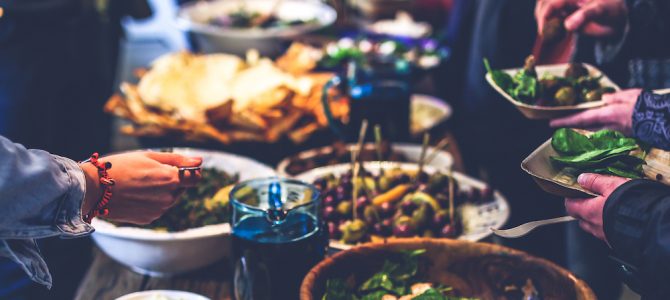Anthony Bourdain fully believed that food was one of life’s great pleasures. He also believed food was the answer to bridging vast differences between people. In 2011, Marc Maron interviewed Bourdain on his “WTF” podcast, and the topic of bonding over a meal became a centerpiece. Bourdain mentioned how he’d been able to find commonalities with new friends in the most unexpected places, all over the world, through the simple common interest of enjoying food.
He suggested that if it were so easy for him to form a bond with people who shared wildly different values in other countries, it should be something that is practiced here in the states between the Left and Right. Bourdain, a life-long, self-proclaimed “Lefty Democrat” found that he could easily find commonalities with other Americans that held conservative beliefs, because they could always find at least some common ground in food and drink.
Bourdain was truthful about himself to a fault, but he did not like dissent at the dinner table. He operated by the “Grandma Rule” — even if you hate the food, and Grandma says something you deeply disagree with — you smile, you eat, and you kiss your grandma and say “thank you” when you leave. He wanted to know people’s favorite foods, where they liked to go out drinking, and what their mothers used to cook for them. If the conversation would eventually shift towards something a bit murkier, and disagreements occurred, the shared meal established a mutual interest, and volatility over unshared political values was dissolved.
This is the greatest lesson that Anthony Bourdain has left us with — the simple fact that everyone likes a good meal, and even if two people like food, but can agree on nothing else, they can still share a meal, a couple beers, and have a good time. There is something humanizing about putting aside differences, if only for a moment, to discuss how good biscuits taste.
In establishing even this small area of common ground, defensiveness and fear can be muted, and a real conversation on differing values can occur. Points can be made calmly, and rationally. Both parties can listen to each other, and even be open to some of the ideas they might here.
For most of us, it can feel like fighting a battle on a daily basis as we defend our beliefs. We can feel threatened by an opinion that is particularly contrarian to our own, and angry when things don’t go the way we had hoped. The internet is particularly hostile ground, and none of us are our best selves when limited to 140 characters. People aren’t bound by a sense of decorum when they type hurtful words to each other in the anonymity of the internet.
At a table, however, with the simple joy of a good meal, civility can be restored. Once you sit down with someone, talk about your favorite childhood foods, and the way your dad taught you to cook a steak, would you be able to look at the person across from you and rip into their morals and values without entertaining the idea of kindness and camaraderie? Though it may be unrealistic to hope that everyone who politically disagrees with each other in the United States will be able to sit down to a good, home-cooked meal, and talk about our favorite neighborhood restaurants, it’s at least a reminder that we can find common ground.








